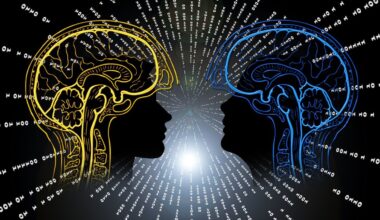Artificial Intelligence (AI) has emerged as a transformative force reshaping various industries and professional landscapes worldwide. Beyond its technological advancements, AI’s impact extends deeply into career trajectories, offering unprecedented opportunities for growth, innovation, and adaptation. Understanding the role of AI in shaping careers is crucial in navigating the evolving job market and leveraging its potential effectively.
The Evolution of AI in Careers
AI integration across industries has redefined job roles and skill requirements. Traditional professions undergo significant changes as AI-driven automation streamlines processes, creating new career avenues while altering existing ones. Roles like data scientists, AI ethicists, and machine learning engineers have surged in demand, reflecting the evolving job market’s needs.
Insight: Embracing AI in one’s career journey demands a proactive approach to learning and adapting to technological advancements.
AI’s Influence on Job Sectors
AI’s impact transcends specific sectors, infiltrating diverse industries. Healthcare witnesses AI applications in diagnostics, personalized medicine, and predictive analytics. Meanwhile, finance relies on AI algorithms for fraud detection and trading strategies. Even creative fields like marketing and content creation benefit from AI-driven data analysis and content generation tools.
Insight: Integrating AI skills into various professions enhances productivity and unlocks innovative solutions, amplifying career growth potential.
AI as a Catalyst for Skill Enhancement
The advent of AI underscores the importance of upskilling and reskilling. Professionals must acquire AI-related competencies, including data analysis, machine learning, programming, and critical thinking. Lifelong learning becomes imperative in staying relevant and competitive in AI-driven industries.
Insight: Continuous learning and adaptability become cornerstones for career success in an AI-centric era, fostering agility in navigating evolving job landscapes.

Entrepreneurship and AI Adoption
AI serves as a catalyst for entrepreneurial ventures. Startups leverage AI technologies to disrupt industries, create innovative solutions, and address societal challenges. Entrepreneurs armed with AI knowledge can capitalize on market gaps, optimizing business operations and delivering impactful products and services.
Insight: Entrepreneurial endeavors fueled by AI innovation have the potential to drive significant societal and economic change, creating new career paths and opportunities.
Ethical Considerations in AI Careers
As AI permeates professional domains, ethical considerations gain prominence. Careers focused on AI ethics and governance emerge, aiming to navigate ethical dilemmas, bias mitigation, and responsible AI deployment.
Insight: Ethical frameworks and responsible AI practices become integral components of AI-driven careers, ensuring ethical decision-making and societal impact assessment.
Collaboration between AI and Human Expertise
AI’s integration doesn’t replace human expertise; instead, it complements and augments it. Collaborations between AI systems and human professionals foster synergies, where AI handles repetitive tasks, allowing humans to focus on creative problem-solving, innovation, and complex decision-making.
Insight: Cultivating a symbiotic relationship between AI and human capabilities amplifies productivity, efficiency, and creativity in various professions.
The transformative influence of AI on career trajectories is undeniable. Embracing AI’s potential necessitates a proactive approach to skill development, adaptability, and ethical considerations. Integrating AI competencies into career paths empowers professionals to navigate the evolving job market, unlock innovative opportunities, and contribute to shaping a future where AI augments human capabilities, fostering a new era of career evolution and advancement.










